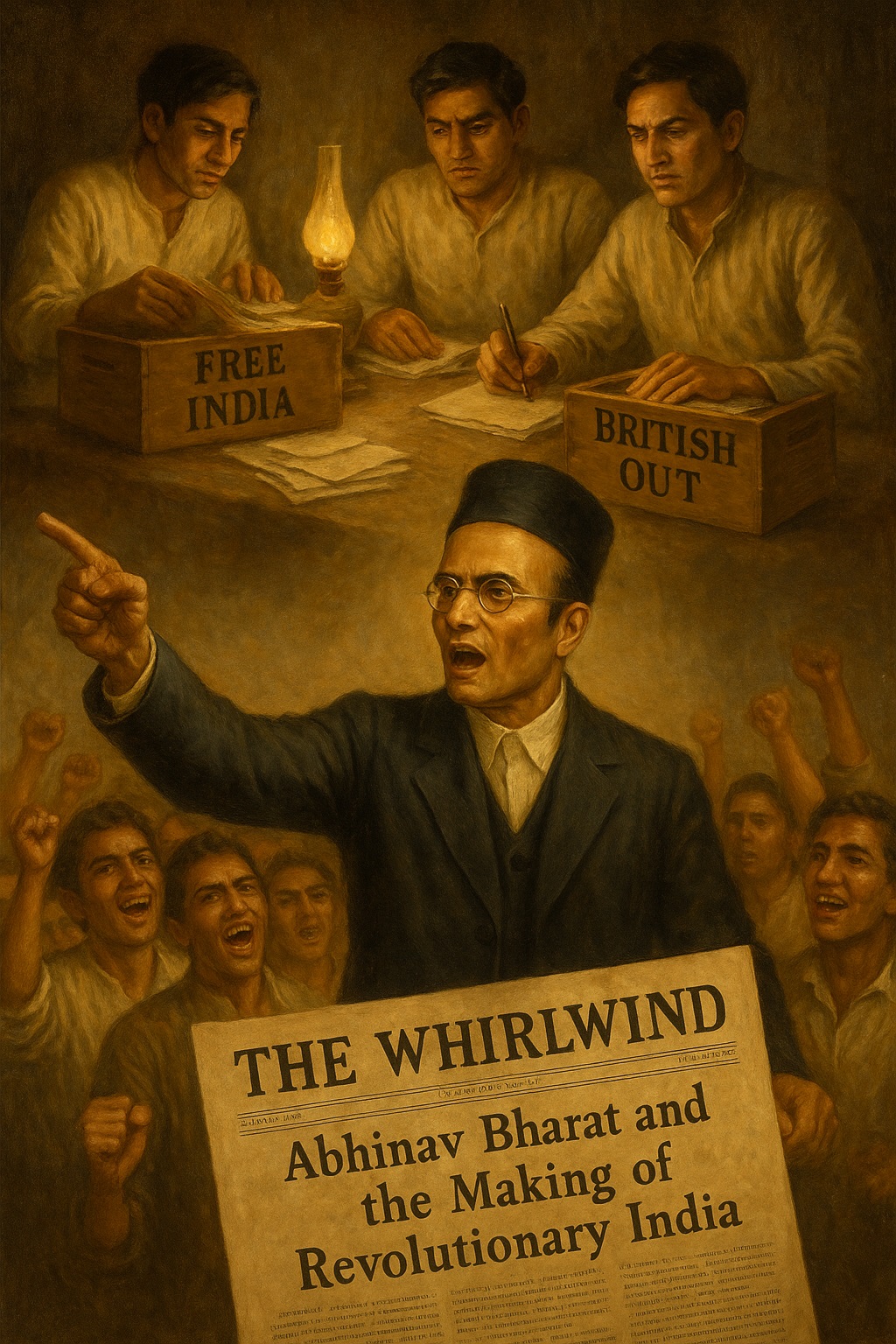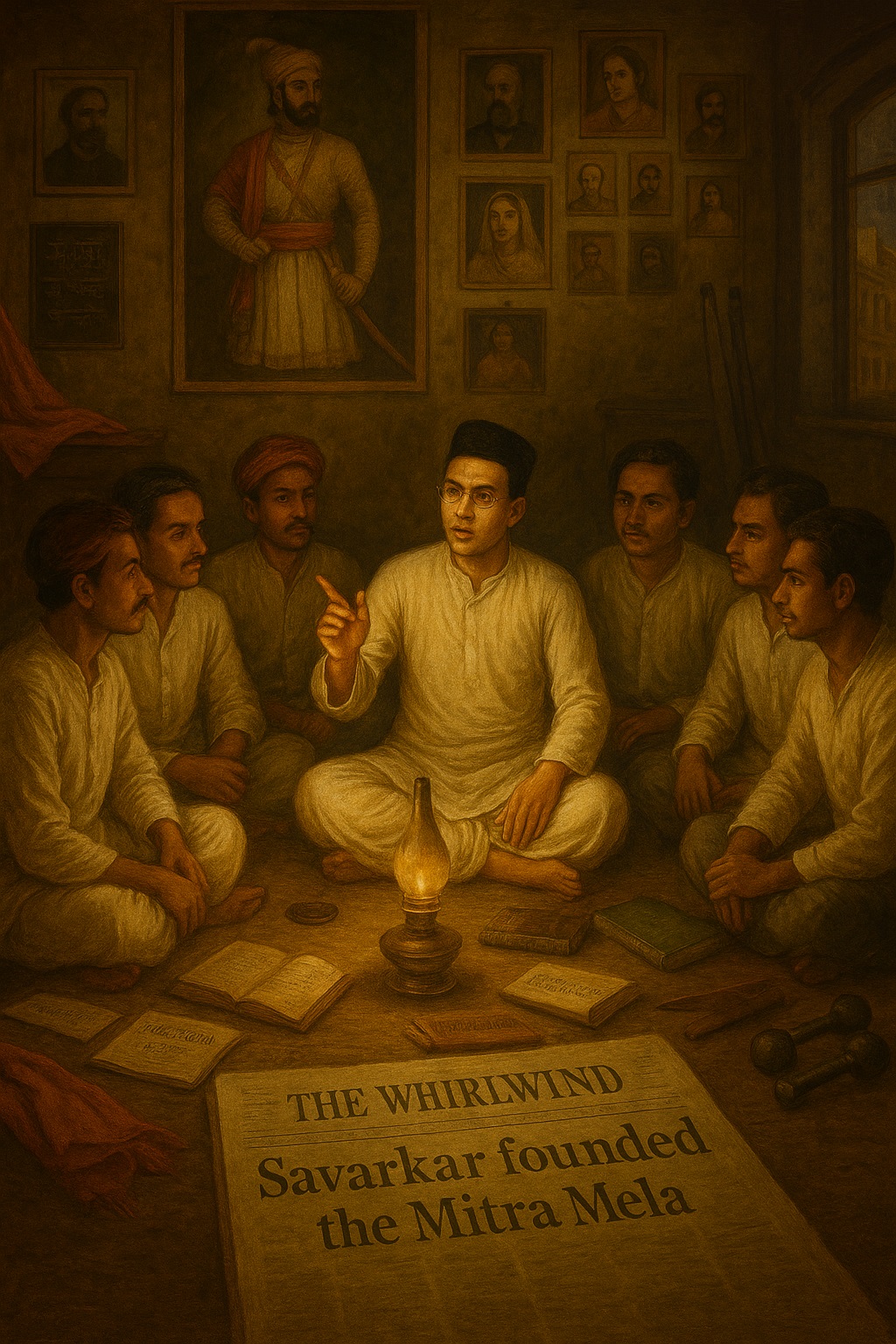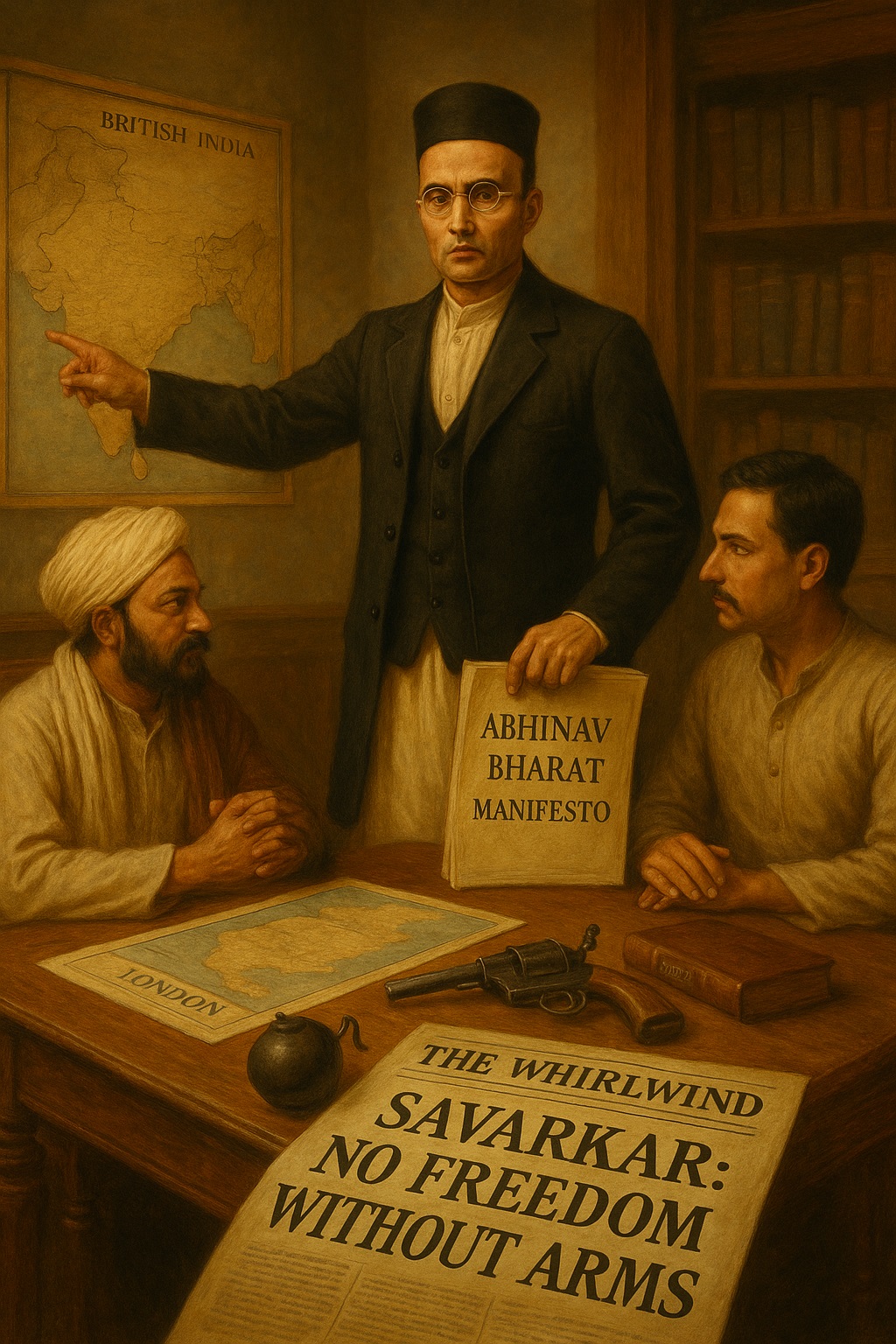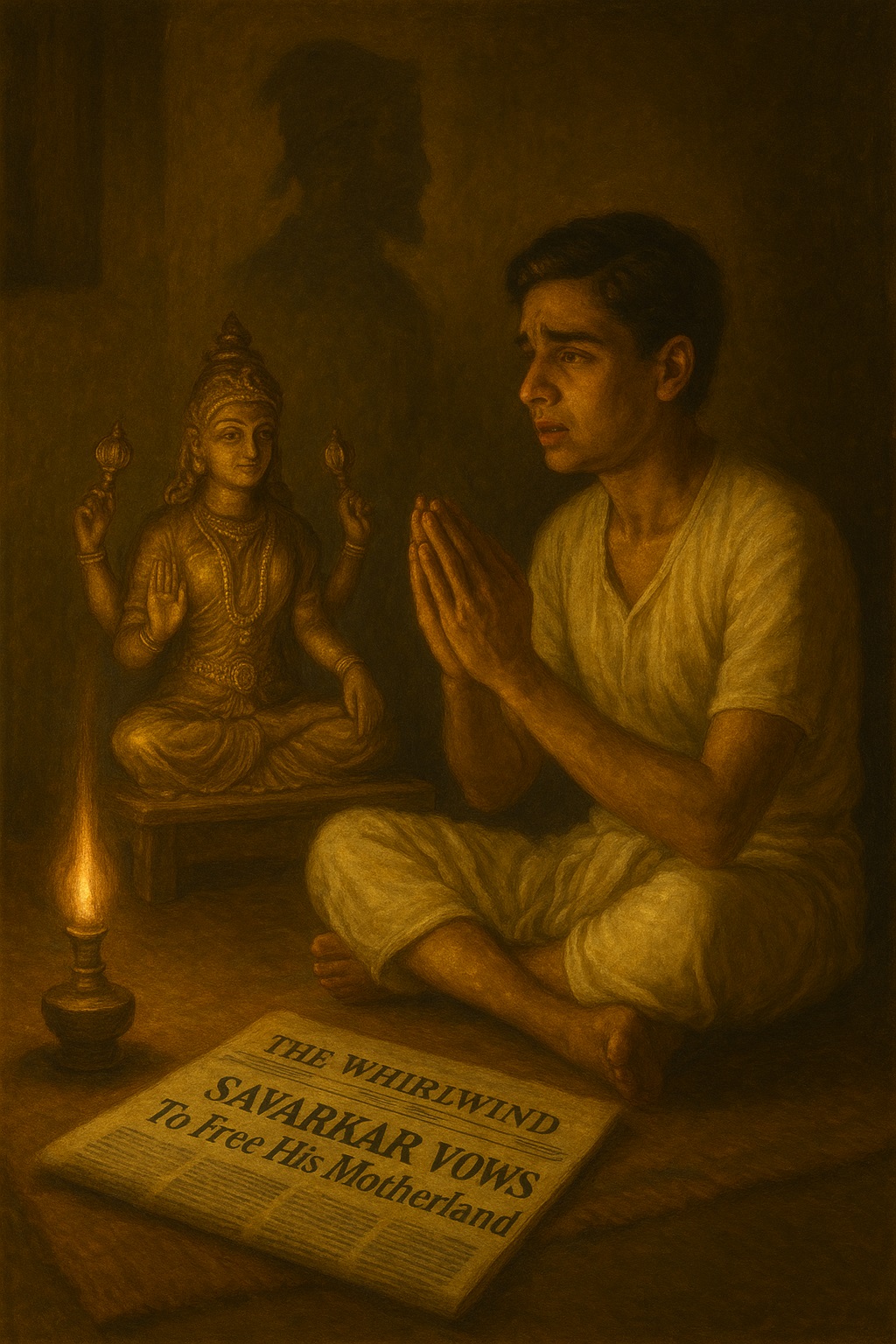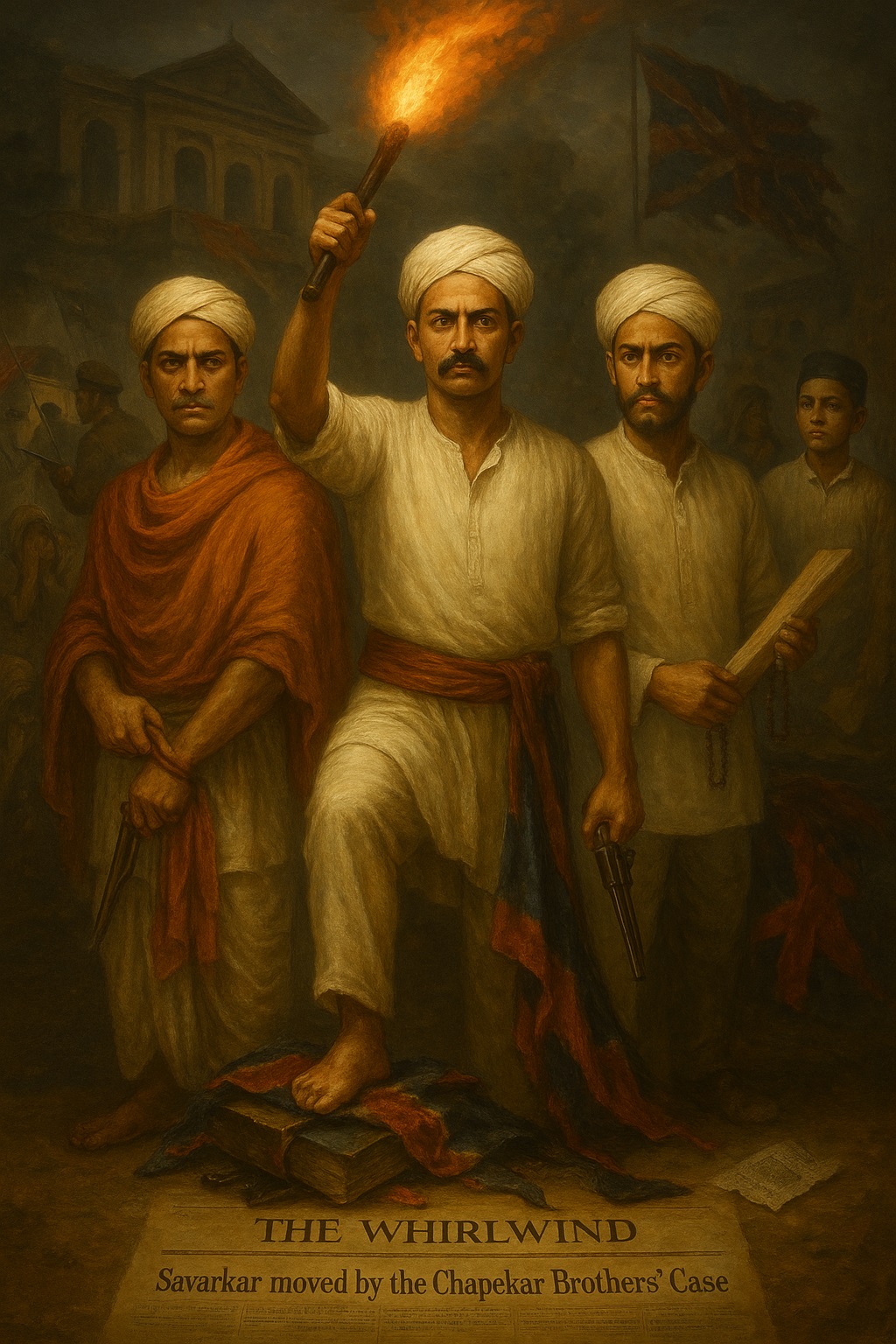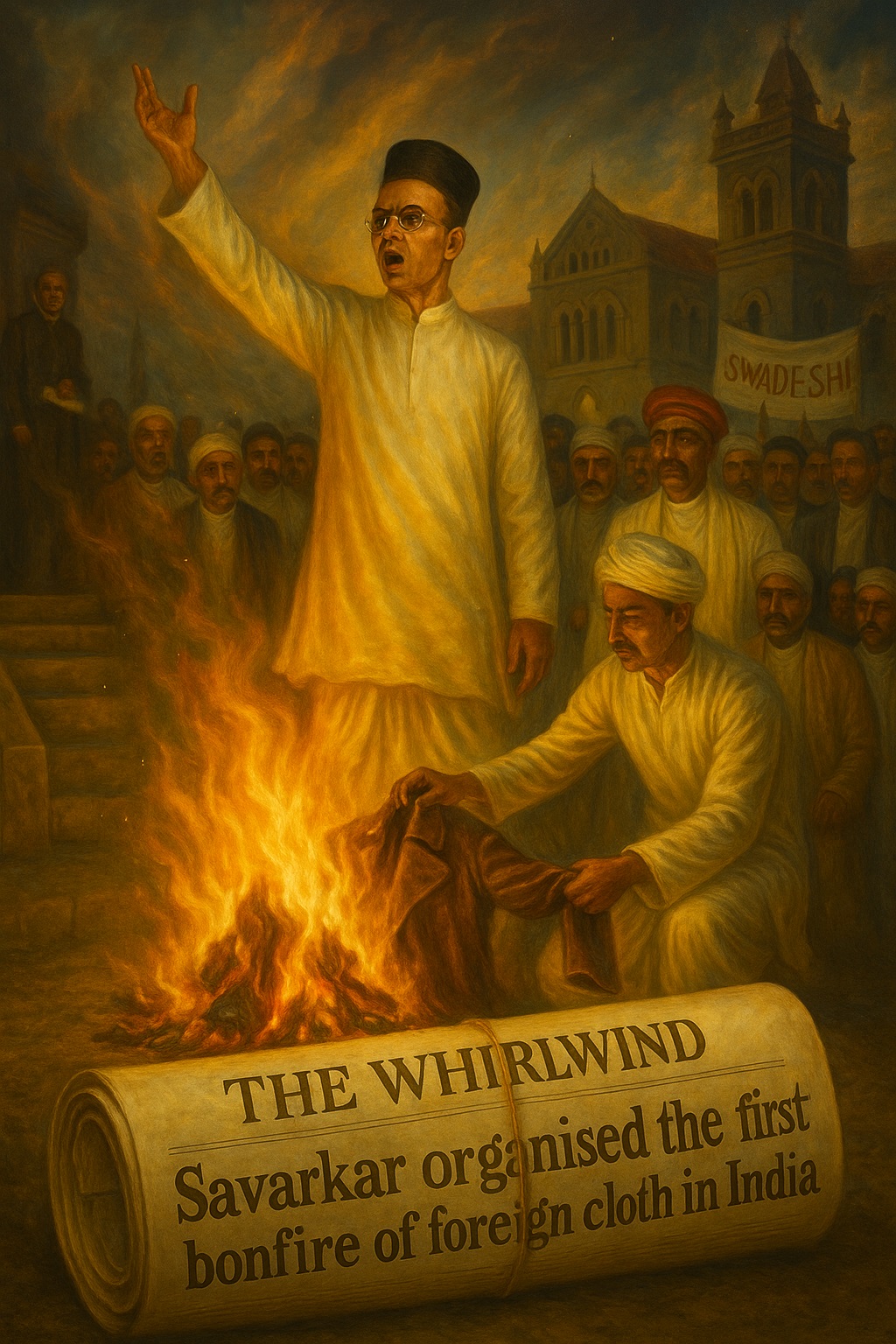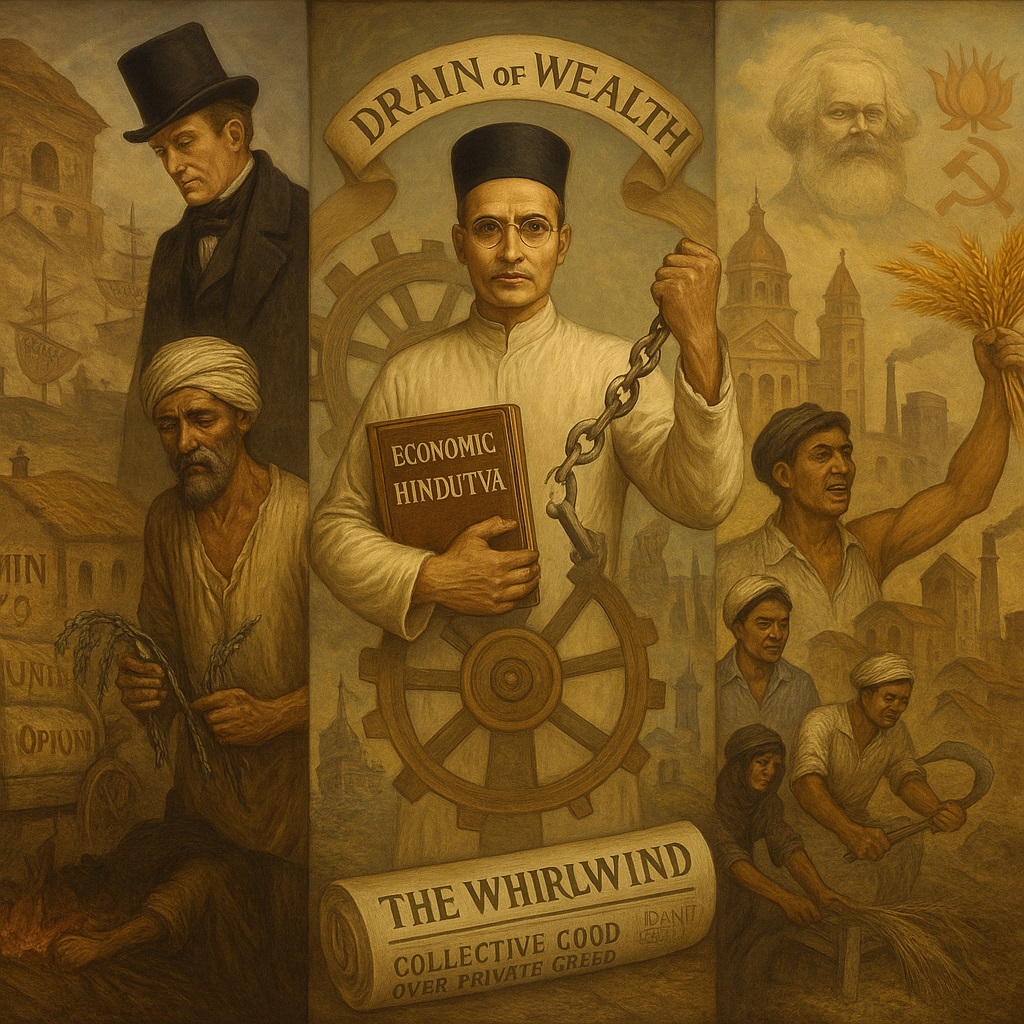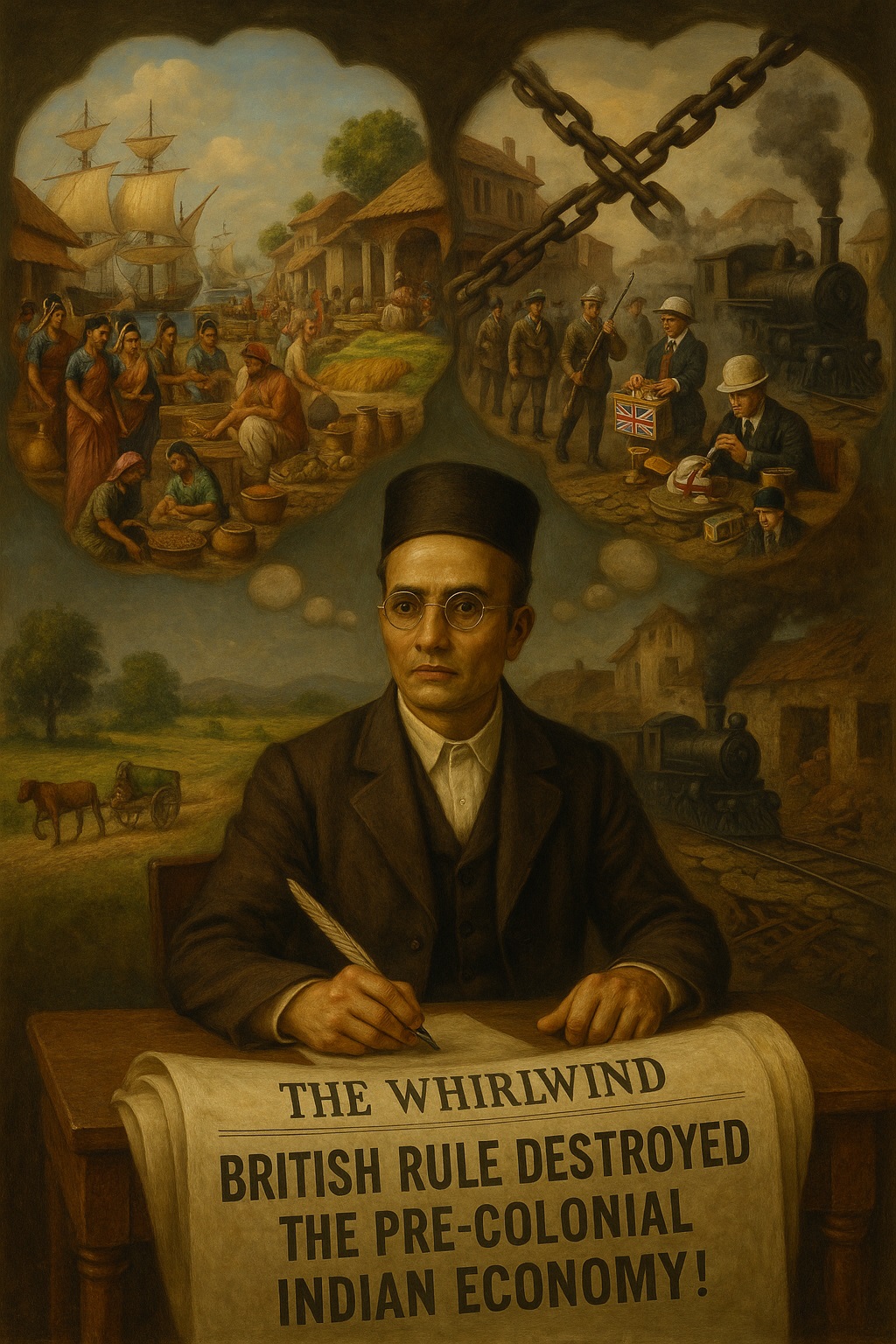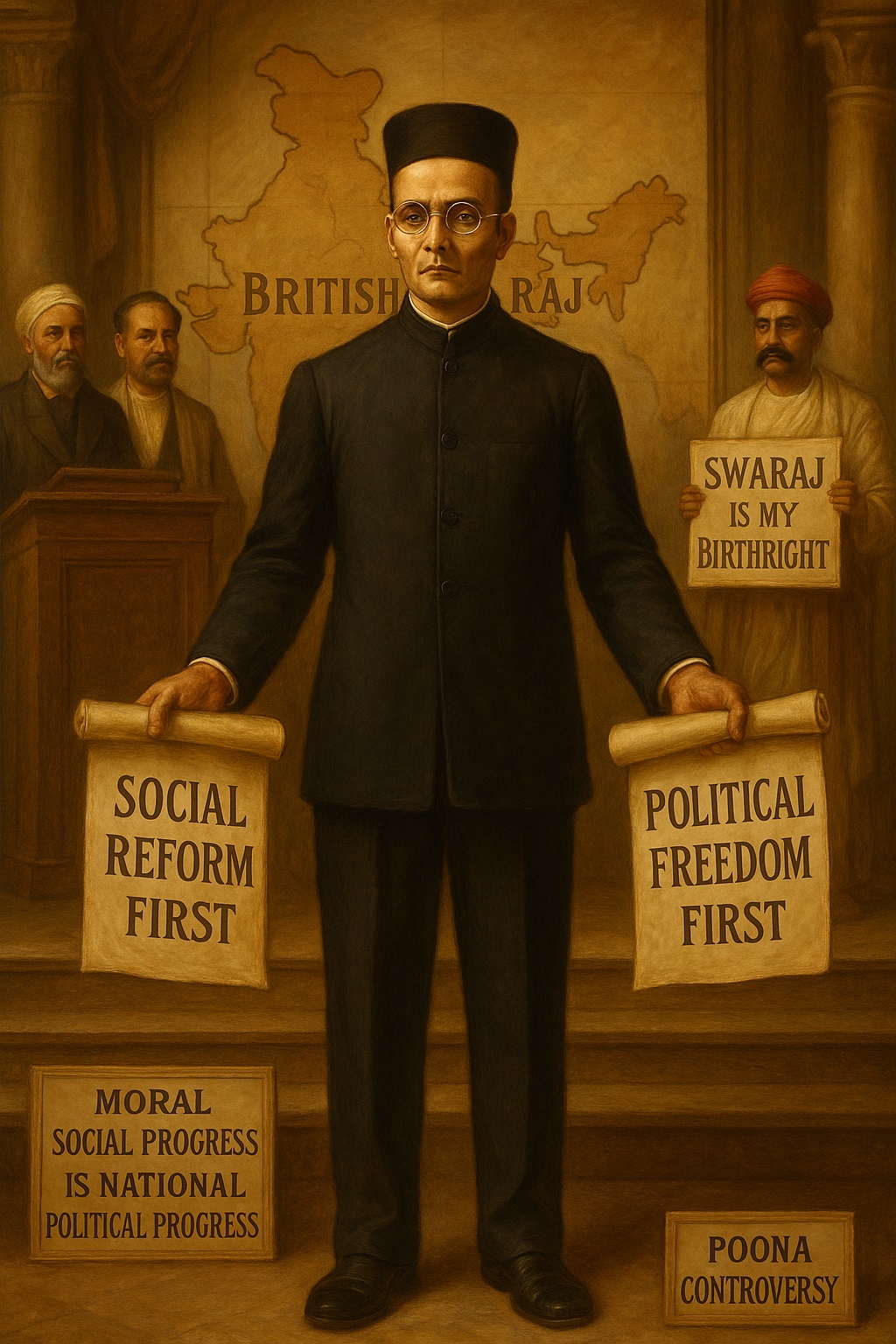Tag: Colonialism
-
In the closing years of the 19th century, a sixteen-year-old Vinayak Damodar Savarkar ignited a spark of revolution by founding Mitra Mela in Nashik, Maharashtra. Conceived in 1899, the group was more than just a circle of friends—it was a secret society devoted to India’s absolute political independence from British rule. Inspired by Mazzini’s Young…
-
Among the many revolutionary groups that contributed to India’s independence struggle, Vinayak Damodar Savarkar’s Varnasena—also known as the “Monkey Brigade”—stands out as a unique and lesser-known force. Comprising primarily of young boys and teenagers, this covert group played a vital supporting role in the anti-colonial resistance of the early 20th century. Mythology Meets Revolution Inspired…
-
From clandestine arms smuggling to guerrilla warfare – how Savarkar’s secret society laid the groundwork for a militant nationalist uprising. Vinayak Damodar Savarkar understood a critical truth of political struggle: words alone – no matter how passionate or persuasive – are powerless without action. To that end, he moved beyond fiery speeches and writings, crafting…
-
One night, in the town of Bhagur, a boy stood before a statue of the armed Goddess Durga. This boy was Vinayak Damodar Savarkar, and the vow he took that night would ignite a revolutionary desire to stand up against British colonial rule in India. The immediate spark was the execution of the Chapekar brothers…
-
In 1897, Poona reeled under a brutal bubonic plague and even harsher British repression. To control the outbreak, British officials led by Collector Walter Rand enforced draconian measures – homes were raided, women harassed, and dignity trampled. While most of society watched in helpless silence, the Chapekar brothers – Damodar, Balakrishna, and Vasudev – chose…
-
In 1905, being in his early twenties, Vinayak Damodar (Veer) Savarkar emerged as a fiery student leader in Poona, galvanizing youth against British imperialism. A staunch proponent of Swadeshi, Savarkar saw the boycott of foreign goods as the moral counterpart to the political opposition to the Partition of Bengal by Viceroy Lord Curzon planned to…
-
Economic Dimension of Hindutva, Part 2 The economic history of India under British colonial rule (British Raj) remains a subject of significant debate, especially when viewed through the lens of a nationalist perspective. Nationalists have long argued that British colonialism destroyed or severely deformed a flourishing pre-colonial Indian economy, which had been progressing smoothly before…

